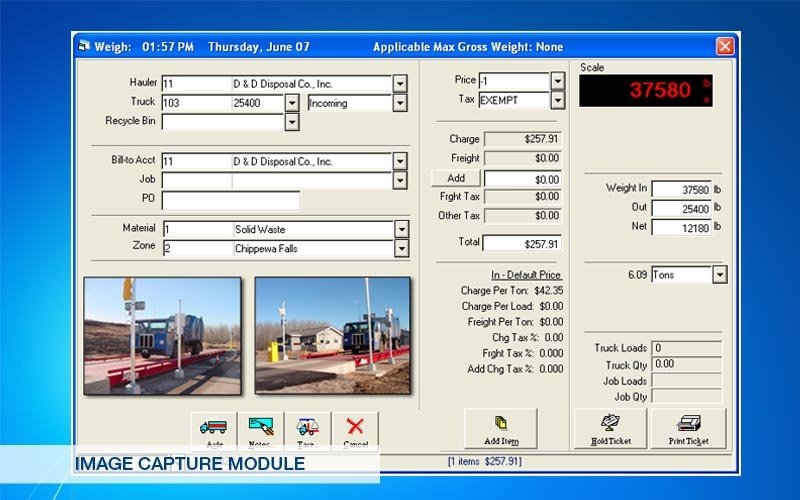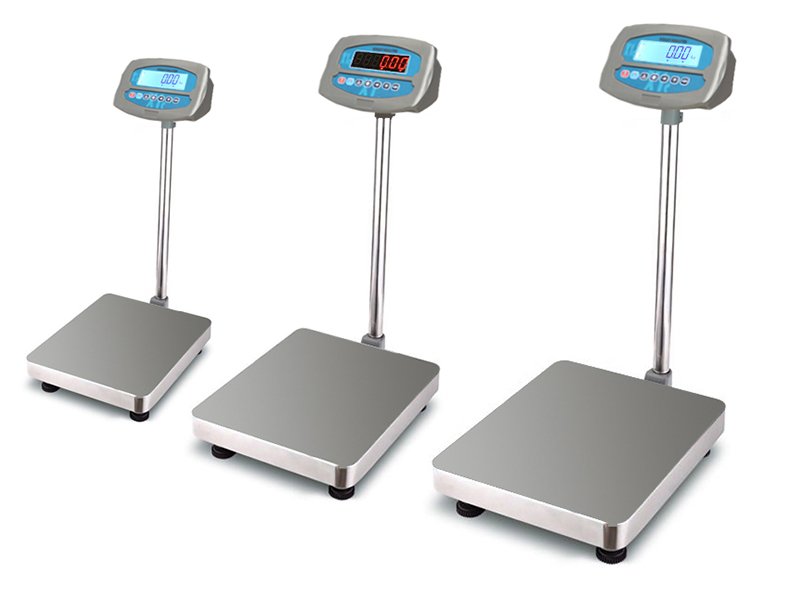Industrial vs Washdown
Industrial and washdown bench scales seem very similar from afar, but upon a closer look, there are a lot of differences between the scales. From scale design, to the materials used to build the scale. Bench and washdown scales share similar functions but are usually used in different applications. Those who are new to scales may be a bit confused on the differences and their applications when searching for a scale. This article will breakdown the differences between industrial and washdown scales, and highlight features unique to each scale.
The Industrial Touch
Industrial bench scales are just as the name implies, a scale built for an industrial environment/setting. Bench scales are usually small to medium sized and are usually reserved for reduced loads in a confined space. Industrial bench scales are usually meant for lower volume loads. You typically see them in warehouses, labs and manufacturing. This is due to having to weigh small items like food, bolts, etc. An industrial bench scale comes in various sizes and components to fit the operator’s needs.
Anatomy of a bench scale
Bench scales are designed to be placed on a table or counter top during usage. They require a small amount of real estate, but are able to weigh a large volume of smaller products. Some scales have a more compact design with integrated display, keypad and indicator. Some of the bench scales are designed to be more customizable. For example, you can find a bench scale with an individual indicator, printer and other components. When looking at different bench scales, one will find the components come in various sizes and compositions. The weighing platter is usually made out of stainless steel for an easy wipe down. The key pad and indicator may be a bit larger than that of a washdown scale because they don’t need to withstand harsher environments. Ultimately the industrial bench scale will have a wider variety of options when it comes to customizing your scale. These particular scales are more so customized to fit the area that it will be predominantly in.
Scale Applications
Counting and checkweighing are some of the more common applications that bench scales use. There are some scales that are designed specifically for counting, while there are different scales that have the functionality of both checkweighing and counting. You will usually see industrial bench scales in manufacturing shops, logistics and parcel companies, due to these particular bench scales being ideal for counting pieces before packaging (screws, washers, etc) or weighing things like packages or checkweighing. You will also see bench scales in the deli and produce departments in supermarkets. Essentially, bench scales are used in a myriad of industries that require the applications mentioned above.
The washdown effect
Understanding what a washdown scale is in relation to an industrial bench scale will help you understand why they are used in certain industries over others. The reason why it is called a washdown scale is because it is designed to be sprayed down and handle harsher environments. These scales are designed to resist spills from fluids being weighed. Washdown scales tend to have stainless steel components (base, platter, etc) and fully sealed indicators. They are also designed to handle extreme temperature changes and can handle being sprayed down by a pressure washer. Washdown scales have an IP rating to help owners identify all the hazards that their scale is resistant to. Be sure to check the IP rating on a scale that you are considering to ensure that your scale is able to handle the environment it will be located in.
washdown scales and their industries
The industries that use washdown scales tend to have so much going on that they need to keep the scale protected and easy to sterilize. Since washdown scales are considered waterproof, or more so, water resistant. Many industries use these scales because of the increased reliability, thus leading to a longer operating life for the scale in that particular environment. In the food industry there are a lot of requirements to meet in order to even operate. A washdown scale is going to have to meet these requirements, so it will have ratings that meet all requirements, including sterilization and can handle frequent cleanings to ensure there are no contaminants. In grocery stores that use washdown scales, they will clean the scale between each weighing of food. This is done to avoid any cross contamination. Manufacturing warehouses tend to have a lot of debris in the air and need a washdown scale that is not only able to be sprayed, but is also sealed to keep dust from getting into the internals of the scale. Essentially washdown scales are used in a lot of industries, but the main requirements for a washdown scale to be used is to be easy to clean, can handle extreme temperature changes and are sealed to prevent debris from harming the internals of the scale.
Conclusion
Washdown and industrial bench scales are similar, yet have different applications. Understanding that these scales have a myriad of functions and features can seem overwhelming but if you know what features are important to have, then selecting and optioning your scale will be easy. Remember that before purchasing a scale, it is beneficial to do research. Check certain features that the scales have that you feel are needed in your operation. Knowing the maximum capacity and IP ratings will help make deciding on the scale a bit simpler. The learning hub can help with more focused articles that can help answer any lingering questions you may have concerning bench scales. Our guide to selecting a washdown scale is a good starting point for anyone interested in getting a scale for their washdown environment.










